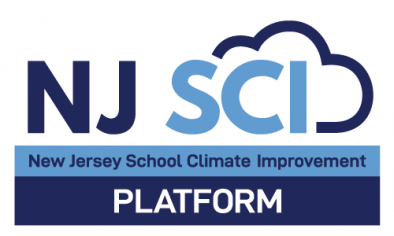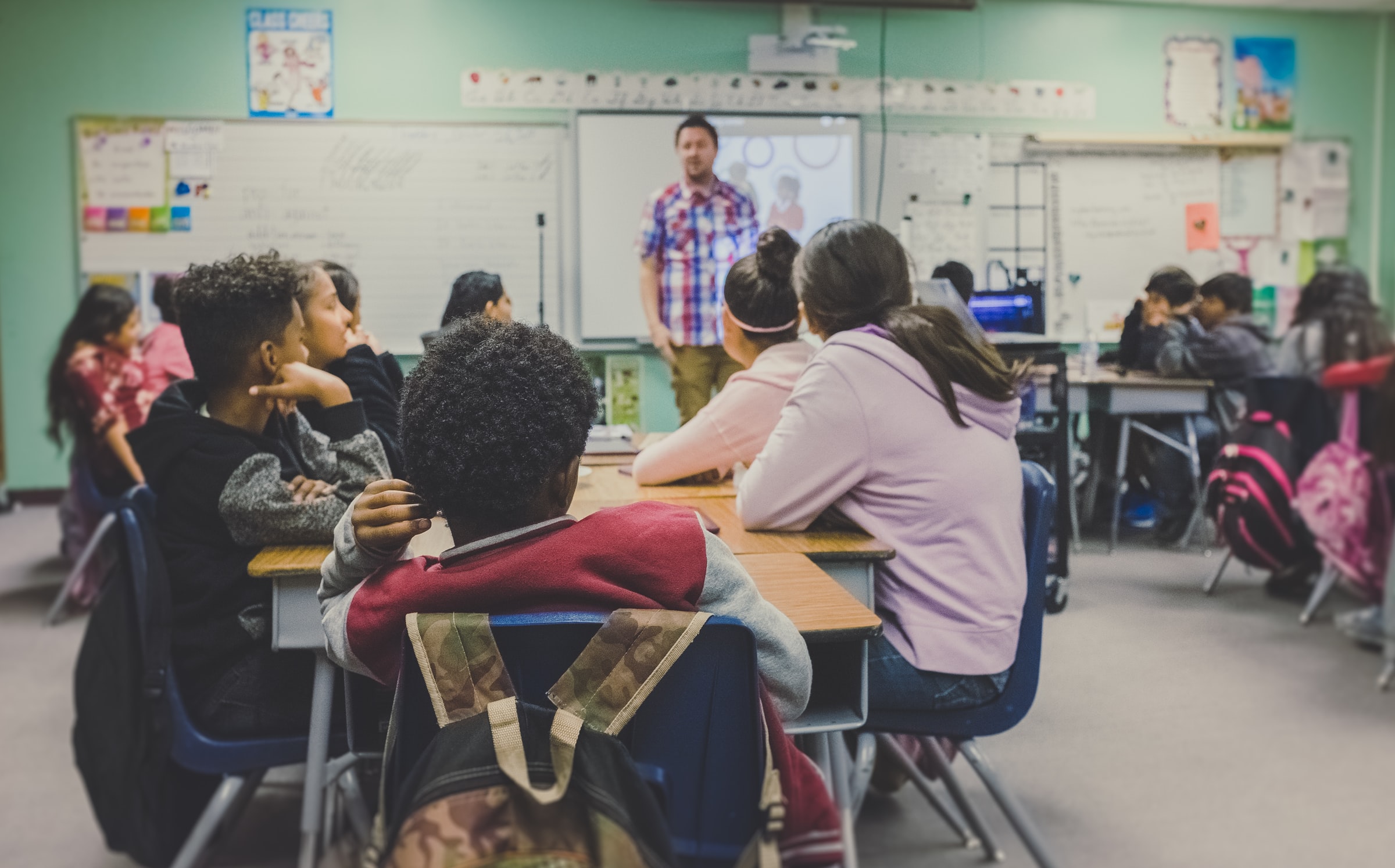School Climate and Culture
An enduring positive school climate and culture are essential conditions for fostering learning and positive youth development that results in productive and fulfilling lives. The NJDOE supports school efforts to assess, develop and maintain positive school climates and cultures and other conditions that affect student learning and growth.
NJ School Climate Improvement (NJ SCI) Platform
 The Department encourages schools interested in utilizing a school climate survey to consider using the no-cost NJ School Climate Improvement (NJ SCI) Platform, which features a new and enhanced, comprehensive instrument developed in collaboration with the School Climate Transformation Project at Rutgers University. The NJ SCI Survey replaced the New Jersey School Climate Survey (NJSCS) and was developed with the specific needs of New Jersey schools in mind. It is designed to help schools to understand school climate needs and strengths from the perspectives of students, families, and staff, but will also provide insight into a school community’s relationships, safety, sense of connectedness, teaching and learning, and measures of an equitable and supportive learning environment, including supports for social and emotional learning. Schools electing to use the NJ SCI Survey will also have access to an online platform managed by Rutgers University that will facilitate data collection and analysis, strategic planning, and progress monitoring.
The Department encourages schools interested in utilizing a school climate survey to consider using the no-cost NJ School Climate Improvement (NJ SCI) Platform, which features a new and enhanced, comprehensive instrument developed in collaboration with the School Climate Transformation Project at Rutgers University. The NJ SCI Survey replaced the New Jersey School Climate Survey (NJSCS) and was developed with the specific needs of New Jersey schools in mind. It is designed to help schools to understand school climate needs and strengths from the perspectives of students, families, and staff, but will also provide insight into a school community’s relationships, safety, sense of connectedness, teaching and learning, and measures of an equitable and supportive learning environment, including supports for social and emotional learning. Schools electing to use the NJ SCI Survey will also have access to an online platform managed by Rutgers University that will facilitate data collection and analysis, strategic planning, and progress monitoring.
The survey and associated communication tools are available in multiple languages for students and parents and caregivers. The NJ SCI Survey development process included an expansive input process, involving representatives from educational organizations that support schools and districts to ensure the survey meets the current and emerging needs of K-12 schools in the state.
Visit www.njschoolclimate.org to submit an interest form for your school district and receive more information.
Statutes
Anti-Bullying Bill of Rights Act (N.J.S.A. 18A:37-21) requires the school safety team in each school in the district "… to develop, foster, and maintain a positive school climate by focusing on the on-going, systemic process and practices in the school and to address school climate issues …" and to "review and strengthen school climate and the policies of the school…")
- NJ School Climate Improvement (NJ SCI) Strategy Resource
- Collaborative for Academic, Social and Emotional Learning
- Committee for Children
- Evidence-Based Practices Resource Center (SAMHSA)
- National Center for School Engagement
- New Jersey Positive Behavior Support in Schools
- National School Climate Center
- Office of Juvenile Justice and Delinquency Prevention, U.S. Department of Justice
- PeaceBuilders: Creating Safe, Positive Learning Environments
- Positive Behavioral Interventions and Supports
- The Resiliency Center
- Search Institute: Discovering What Kids Need to Succeed
- Stanford University, John W. Gardner Center for Youth and Their Communities
- United States Department of Education, Safe and Supportive Schools Technical Assistance Center
Guidance for School Districts to Support LGBTQIA+ Youth
State statute (N.J.S.A. 18A:36-41) directs the Commissioner of the New Jersey Department of Education to establish guidelines to provide direction for schools in addressing common issues concerning the needs of transgender students, and to assist schools in establishing policies and procedures that ensure a supportive and nondiscriminatory environment for transgender students.
School Climate Resources to Support LGBTQIA+ Youth
- Creating Safe Schools for LGBTQ+ Youth, including an LGBTQ Inclusivity in Schools Self-Assessment Tool (CDC, Adolescent and School Health).
- (CDC, Adolescent and School Health).
- GLSEN's National School Climate Survey produces a report on the experiences of LGBTQ+ youth in schools.
- Learning for Justice offers best practices for serving LGBTQ students.
- Proud & Empowered is a school-based school climate intervention for LGBTQ+ youth.
- Resources for LGBTQIA+Youth
- NJ's Transgender Information Hub allows users to search for information for transgender and non-binary individuals.
- Altering school climate through school-wide positive behavioral interventions and supports: Findings from a group-randomized effectiveness trial. Bradshaw, C., Koth., Thornton, L., and Leaf, P. (2009). Prevention Science, 10(2), 100-115.
- The Expect Respect Project: Creating a positive elementary school climate. Meraviglia, M.G., Becker, H., Rosenbluth, B., Sanchez, E., and Robertson, T. (2003). Journal of Interpersonal Violence, 18(11), 1347-1360.
- The impact of enhancing students' social and emotional learning: A meta-analysis of school-based universal interventions. Durlak, J.A., Weissberg, R.P., Dymnicki, A.B., Taylor, R.D., and Schellinger, K.B. (2011). Child Development. 82(1), 405-432.
- The interface of school climate and school connectedness and relationships with aggression and victimization. Wilson, D. (2004). Journal of School Health, 74(7), 293-299.
- Long-Term Effects of the Seattle Social Development Intervention on School Bonding Trajectories.
- Organizing schools for improvement: Lessons from Chicago. Bryk, A.S., Sebring, P.B. Allensworth, E., Luppesco, S., and Easton, J.Q. (2010). Chicago: University of Chicago Press.
- Powerful learning environments: the critical link between school and classroom cultures. Finnan, C., Schnepel, K., and Anederson, L. (2003). Journal of Education for Students Placed At Risk, 8(4), 391-418.
- School climate and implementation of a preventive intervention. Gregory, S., Henry, D.B., and Schoeny, M.E. (2007). American Journal of Community Psychology, 40(3), 250-260.
- The School Climate Challenge: Narrowing the Gap Between School Climate Research and School Climate Policy, Practice Guidelines and Teacher Education Policy
- School climate factors relating to teacher burnout: A mediator model. Grayson, J.L. and Alvarez, H.K. (2008). Teaching and Teacher Education, 24(5): 1349-1363.
- School Climate Research Summary. Thapa, A., Cohen., J., Higgins-D'Alessandro, A., and Guffey, S. (2012). School Climate Brief, No. 3. National School Climate Center, New York, NY.
- Social competence, social support, and academic achievement in minority, low-income, urban elementary school children. Elias, M.J. and Haynes, N.M. (2008). School Psychology Quarterly, 23(4), 474-495.
- There Isn't a Moment to Lose: Report of the New Jersey Commission on Bullying in Schools.
- Whole school improvement and restructuring as prevention and promotion: Lessons learned from STEP and the project on high-performance learning communities. Felner, R.D., Favazza, A., Shim, M. Brand, S., Gu, K., and Noonan, N. (2001). Journal of School Psychology, 39, 177-202.
- Youth perceptions of life in school: Contextual correlates of school connectedness in adolescence. Whitlock, J.L. (2006). Applied Developmental Science, 10(1), 13-29.
- School Climate State Coordinator Annual Report FY 2023
 Official Site of The State of New Jersey
Official Site of The State of New Jersey
